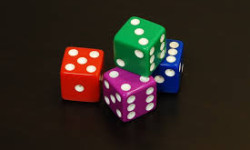Let’s say you’re the only child. Then Mom has a new baby, and you think “I’m not enough — she’s trying to replace me!”. Maybe years later, with an adult viewpoint, you see this in a very different light. Mom wanted you to have a younger sibling who’d be a lifelong friend, someone to play with while you were growing up who was closer to your size than your parents were. Neither your childhood view or your adult view is right or wrong. It’s all in how you look at it.
Your birth order wasn’t under your control, but you might have made it mean that you were special and important, or less-than, or something else. It’s a tenet of many energy healing programs I’ve studied that our attitude about what happens to us is as important, if not more important, than the actual event which occurred. A tragedy can cause you to feel like a broken victim, or like a triumphant survivor.
This applies to vision challenges, and to vision improvement, too. How do you see yourself? How do you explain yourself to others? “I’ve always been near-sighted” comes to mind — I used to say this offhandedly, like it was part of my core identity, as much of Who I Am as my dark brown curly hair. I could say today “I’ve always been sensitive, and used to be quite anxious when I was younger. This showed up in me as near-sightedness”. This is equally true, maybe more true. Yet it doesn’t unnecessarily lock me into that thick eyeglasses cage forever, as if that’s my destiny and I have no control over it.
If you have some vision challenges, are you resentful of those who don’t, feeling like you got an unlucky roll of the Dice of Life? Everyone stores their stress somewhere in their body. It just may be easier to notice the manifestation of the stress if a person wears glasses, than if they’re on blood pressure medication, or have an ulcer. Would you really rather have someone else’s problems?
Now that you’re becoming familiar with vision improvement, you are starting to rewrite your own vision story. “I’m learning to read without glasses and without strain” you can say, or “I can drive legally without glasses which I never could before”, or even “Now I enjoy looking at faraway scenery, when I used to not even look in the distance because I thought I couldn’t see anything!”.
Don’t hang onto that limited view of yourself and your visual capability so tightly you can’t grow out of it. See yourself seeing clearly and easily at all distances. If you don’t want to see something, you can always turn away or close your eyes — you don’t have to blur your vision. Maybe when your eyesight challenges started, you thought that was your only choice. Today you know it’s not, and you can choose to see whatever you want to see, then practice seeing it even more clearly. Life is abundantly gorgeous, everywhere you look — why blur it out?
get help on our Facebook Group!

I wore strong glasses, then contact lenses, from age 5 into my 40s. While making many mistakes, eventually l learned how to improve the way I use my eyes and to see in a more relaxed, healthy manner. It is my pleasure to coach others to do the same. Visit me at https://NancyLNeff.com.
